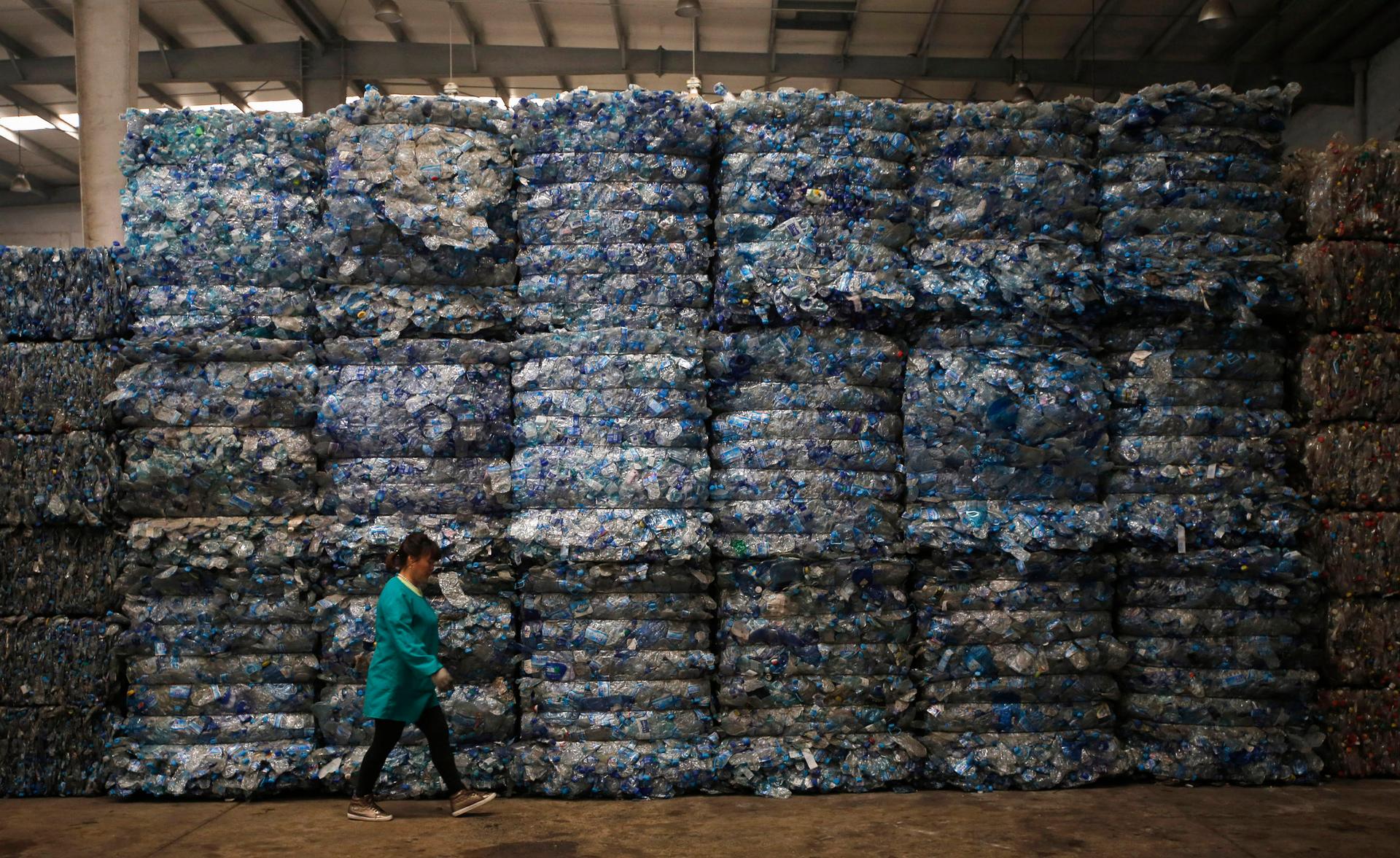The US wants China to reverse its decision to bar foreign garbage
A worker walks past piles of plastic PET bottles at Asia's largest PET plastic recycling factory, INCOM Resources Recovery in Beijing May 7, 2013.
The United States asked China on Friday not to implement a ban on imports of scrap materials, after the world's top scrap buyer abruptly shut the door to many types of waste, throwing the global recycling industry into turmoil.
Reuters broke the news last July that China had told the World Trade Organization that it would stop accepting shipments of rubbish such as waste plastic and paper as part of a campaign against "foreign garbage."
The US Institute of Scrap Recycling Industries said at the time that the ban would devastate an industry that supported 155,000 jobs and had exported scrap worth $5.6 billion to China in 2016.
The United States raised concerns about the ban, and a subsequent revision of standards for a variety of scrap metals, at the WTO's Council for Trade in Goods on Friday.
"China's import restrictions on recycled commodities have caused a fundamental disruption in global supply chains for scrap materials, directing them away from productive reuse and toward disposal," a US representative told the meeting, according to a trade official in Geneva.
The United States recognized China's environmental concerns, but Beijing's approach seemed to be having the opposite effect to what was intended, and its rules had changed far too quickly for industry to adjust, the US representative told the meeting.
WTO obligations
China seemed to be breaching its WTO obligations by treating domestic and foreign waste differently and employing an overly trade-restrictive policy, the US official said.
"We request that China immediately halt implementation and revise these measures in a manner consistent with existing international standards for trade in scrap materials, which provide a global framework for transparent and environmentally sound trade in recycled commodities."
The European Union's representative at the meeting said China's policy would force scrap to be rerouted to third countries which may not have facilities for safe recycling, or to landfill or incineration, causing environmental damage.
The EU also questioned the science behind China's ban, while several countries said they appreciated China's goal but were not convinced about how it was trying to get there.
China's representative agreed to take the comments into account but said that every country had a responsibility to dispose of its waste, and with its large population China was obliged to restrict imports of waste while cleaning up at home.
"China is seeking a path toward harmonization of man and nature," the trade official quoted China's delegate as saying.
The dispute over scrap comes amid increased concerns of a full-blown trade war between the United States and China.
US President Donald Trump this week signed a memorandum targeting up to $60 billion in Chinese goods with tariffs over what his administration says is misappropriation of US intellectual property but only after a 30-day consultation period that starts once a list is published.
Trump has also announced steep tariffs on steel and aluminum imports to the United States.
